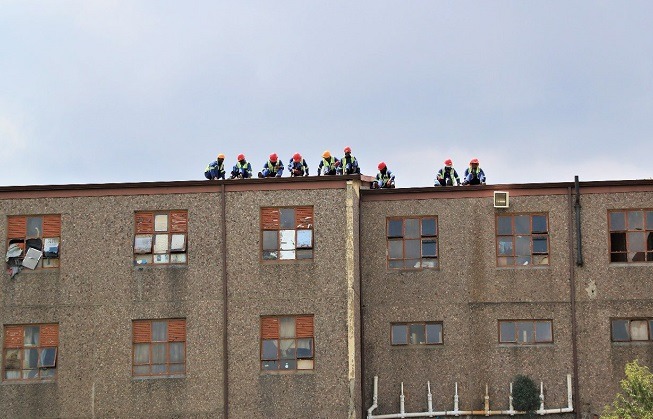The Gauteng Department of Human Settlements and Infrastructure Development is taking steps to dismantle the apartheid-era hostel concept, with plans to replace it with integrated family units.
Historically, hostels were predominantly male living quarters located on the outskirts of townships, lacking suitability for family living.
Chief Director for Hostel Redevelopment at the Gauteng Human Settlement Department, Sthenjwa Ngcobo, outlined the department’s vision, stating, “We would want to have a situation where these spaces are transformed into livable and integrated human settlements—where we actually get rid of these dormitories that were built by the apartheid government and build units. But they should be integrated human settlements that are livable.”
“It won’t be hostels once we’re done with them – we want to get rid of even the concept of hostels and transform spaces into – probably you can call it township livable spaces – so that we get rid of a concept of a hostel in its physical form, and as well as its psychological form,” adds Ngcobo.
In 2019 the Gauteng provincial government described the multi-million rand project to convert hostels into family units as a monumental failure and waste of money. The provincial government in 2014 embarked on a programme to refurbish hostels and convert them into family units.
During his tenure, former Gauteng Human Settlements MEC Paul Mashatile announced that R165 million would be spent to convert the hostels. However, the project was marred by controversy when it was about to be completed.
The project was hailed as a ground-breaking step to change the apartheid landscape and replace the old hostels with new habitable spaces.
In Soweto, the Dube, Jabulani and Meadowlands hostels were identified for development, but the project was later abandoned. In Meadowlands, R13.7 million was earmarked to be spent developing over 3 444 units. This was in addition to R31.8 million that had already been spent on improving the hostel. In Diepsloot, R22 million was allocated.
The purpose of the visit was to check on the progress made regarding the Hostel Redevelopment Programme and the interventions made by the Department namely; routine cleaning and environmental upkeep for a healthier environment and improved living conditions, major repairs… pic.twitter.com/Q8ENzhRY88
— GP_HumanSettlements (@GP_DHS) January 25, 2024
The hostels site inspections consisted of George Goch Hostels, Denver Hostels and Jeppe Hostels. pic.twitter.com/UNEtiY5U6G
— GP_HumanSettlements (@GP_DHS) January 25, 2024






